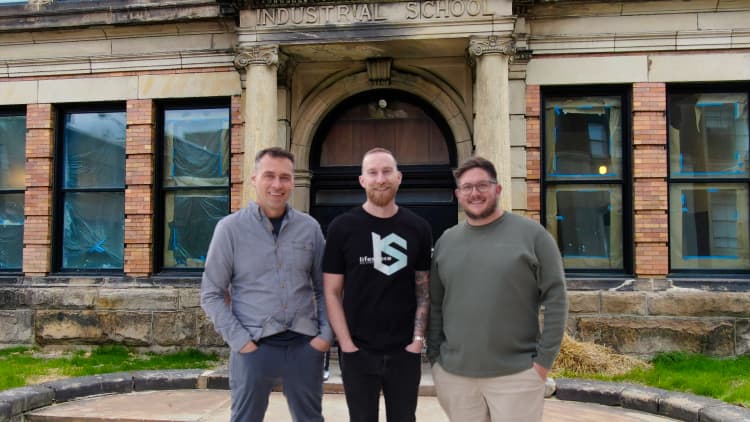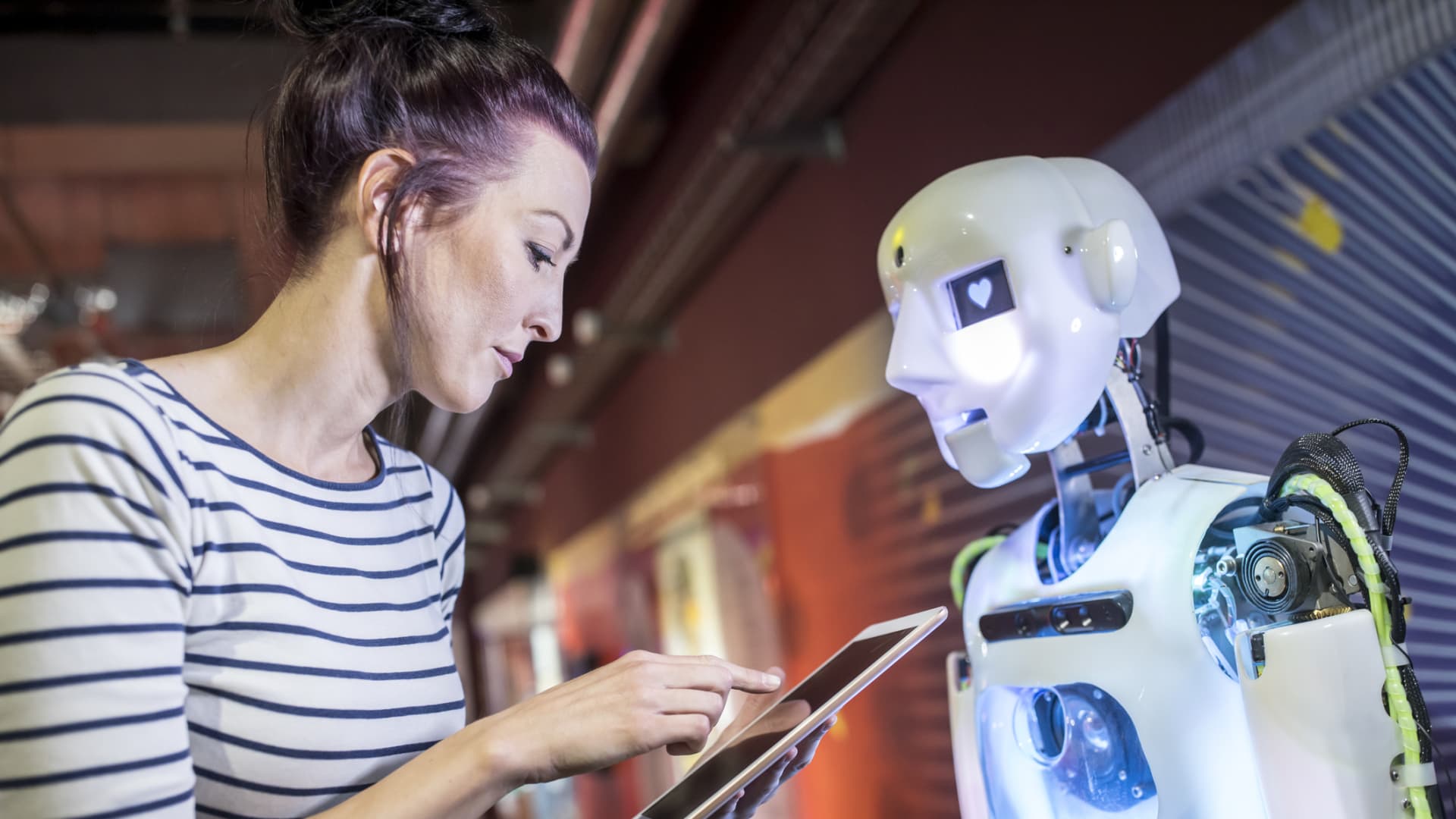In just one year, artificial intelligence has gone from being the stuff of science fiction movies to being used as a tool to help us polish our resumes and plan European getaways.
Given the rapid development of AI models such as OpenAI’s ChatGPT and Google’s newly released Gemini, some may wonder if these systems could eventually replace humans altogether.
But many tech experts don’t appear to be too worried about that happening any time soon.
“AI can certainly recognize your house cat, but it’s not going to solve world hunger,” Theo Omtzigt, chief technology officer at Lemurian Labs, tells CNBC Make It.
AI probably won’t replace humans because of math
One reason AI likely won’t replace people completely is both pretty simple and complex: math.
But human intelligence goes far beyond pattern recognition. That’s why the mathematical models powering current generative AI systems are “relatively super simple,” Omtzigt says.
“Right now, the machine learns how to recognize a cat and what it will look like in different lighting,” he says. “We would have to progress a lot deeper in our understanding of creative thoughts, ethics and consciousness before we would even have the building blocks to think of how to create an AI that would be able to wipe out humanity.”
AI systems gain knowledge differently than humans
Another reason tech experts don’t believe AI will replace people is because it gains knowledge differently than humans.
“Generative AI and machine learning techniques are very heavily based on correlation, as opposed to causation,” Justin Lewis, BP’s vice president of incubation and engineering, said Thursday during a panel discussion at the AI Summit New York 2023.
After processing many images of rain, an AI model may learn to correlate rain with clouds because in every picture of rain, there are clouds. However, a human learns that clouds produce rain, says James Brusseau, a philosophy professor at Pace University who also teaches AI ethics at the University of Trento in Italy.
“AI and humans are both knowledge producers, just like the sculptor and painter are both artists,” he tells CNBC Make It. “But they will be forever, in my mind, be distinct and separated. One will never be better than the other so much as they will just be different.”
AI won’t replace humans, but people who can use it will
Fears about AI replacing humans aren’t completely unwarranted, but it won’t be the systems on their own that take over.
“There’s definitely going to be a difference between those that use AI and those that don’t,” Trevor Back, chief product officer at Speechmatics, said during Thursday’s panel discussion at the AI Summit New York 2023.
“If you don’t use AI, you are going to struggle since most roles will use some form of AI in the way that they act,” he said.
For example, many tech experts currently see AI being used as a tool that helps people boost their productivity. A software engineer may use AI to speed up the code review process and identify potential errors they or another human may have missed.
Since AI doesn’t seem to be disappearing any time soon, one of the best ways to fend off worries about being replaced by it is to explore how these systems work and how they can help you, Brusseau says.
“Curiosity is good,” he says. “You have to say ‘I’m not afraid of what the machine might do to me. I’m interested in what it can do for me.'”
DON’T MISS: Want to be smarter and more successful with your money, work & life? Sign up for our new newsletter!
Get CNBC’s free Warren Buffett Guide to Investing, which distills the billionaire’s No. 1 best piece of advice for regular investors, do’s and don’ts and three key investing principles into a clear and simple guidebook.
CHECK OUT: On ChatGPT’s one-year anniversary, it has more than 1.7 billion users—here’s what it may do next


